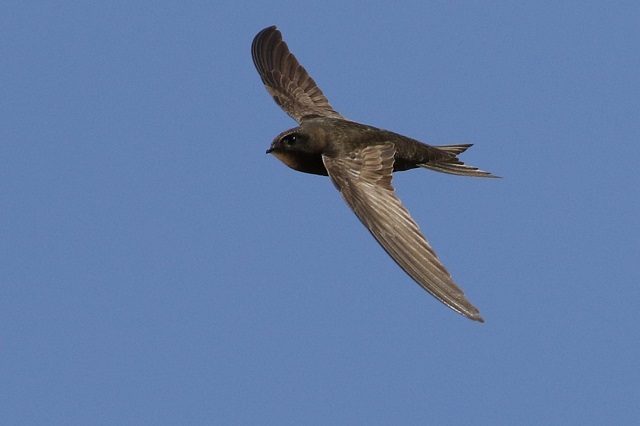MI weekly selection #204

Common swift can fly for 10 months straight
The common swift can fly for 10 months without landing. The birds capture food in the air and drink by skimming water, and if they stop at all, it’s only for one or two hours before they resume their long migration between Northern Europe and Central Africa.
Bacteria may help tiny, translucent crustaceans hide from predators
Tiny, translucent crustaceans can make their bodies less reflective with the help of some friendly bacteria. Researchers think bacteria are responsible for creating an anti-reflective film found on the bodies of Hyperiid amphipods, helping them hide from predators.
Genome analysis shows evidence of chimpanzee-bonobo interbreeding
Genetic tests have revealed that chimpanzees and bonobos interbred in two different periods, much the same way that ancient humans interbred with Neanderthals. Researchers examined the genomes of 65 chimps and 10 bonobos and found that interbreeding occurred twice, once about 500,000 years ago and then again 200,000 years ago.
Fossilized dinosaur brain fragment found in UK
A fragment of a dinosaur’s brain resembling a large brown pebble has been discovered in the UK. The fossilized brain matter likely belonged to an early Cretaceous-era, plant-eating dinosaur related to the iguanodon, and it is the first piece of fossilized dinosaur brain ever found.
Male contraceptive proves effective, but trial ends due to side effects
A male contraceptive that was injected into test subjects was nearly 100% effective, but concerns about the side effects caused researchers to halt the trial. Despite the side effects, which included mood disorders such as depression, as well as muscle pain, acne and increased libido, three-fourths of the study participants said they would continue the treatment if it were still available.